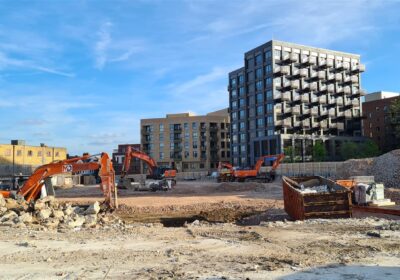It’s a clear reflection of the extent of the housing crisis when the Church of England is compelled to come forward and attempt to lead the UK out of its current quagmire. The CoE states it will act “immediately” to build affordable homes on land highlighted for development which could see the delivery of 28,500 new homes –around 8,600 could be affordable. It’s also calling for a new 20 year national housing strategy from Government.
There are some interesting proposals including the legal framework for selling church assets being amended so church land and buildings can be used for social and environmental, as well as economic benefit. Also, “glebe land” which is required by church law to be held to fund clergy salaries could be made available for disposal.
The report is well reasoned and makes a compelling case. However, the issues are complex and there are some significant commercial and political challenges which I think need further consideration. As a negotiator who has worked with three different religious groups to unlock land in London, here is my take on the challenges CoE and other faith based organisations could face:
- It’s not just the land: The CoE report is based off a mapping exercise but very often in city and urban contexts, the land owned is already occupied by community centres or worship facilities and the ask is for renewal not exit. It is these sites, some of which have historical significance which can also be important housing opportunities. However, often the need to replace and improve what is already there means that the delivery of affordable housing can be challenging. Reading the report, this trade off isn’t fully considered but unfortunately it is the reality.
- Decision making: The report considered the competing pressures of land disposal: the need to achieve best value under the charities act and how to make effective commercial judgements. It’s very difficult for non-property professionals to judge what is a good offer and outcome particularly when legislation drives one set of behaviours but the social mission seeks another. This requires experience and an ability to consider nuance. Partnership is vital between developers and faith-based organisations if sites are to be successfully unlocked and this will take time to forge.
- Politics with a small ‘p’: Let us not forget that beyond the organisation there are also the congregations. Often, I have found congregations to be full of committed and serious-minded people who want to see the future of their local community hub secured. There is not always a uniform view on how this can be achieved and often concerns about financial sustainability are front and centre. Navigating the complexities is time consuming and needs careful attention.
Overall, it’s really pleasing to witness the Church of England taking a lead. They are not the only religious organisation which benefits from substantive land assets and this initiative could set an example to others. Partnership is evidently critical here and realism is needed on what can be achieved quickly and effectively. The leadership that is being shown should be commended and built upon. What the Church does next remains the question.










